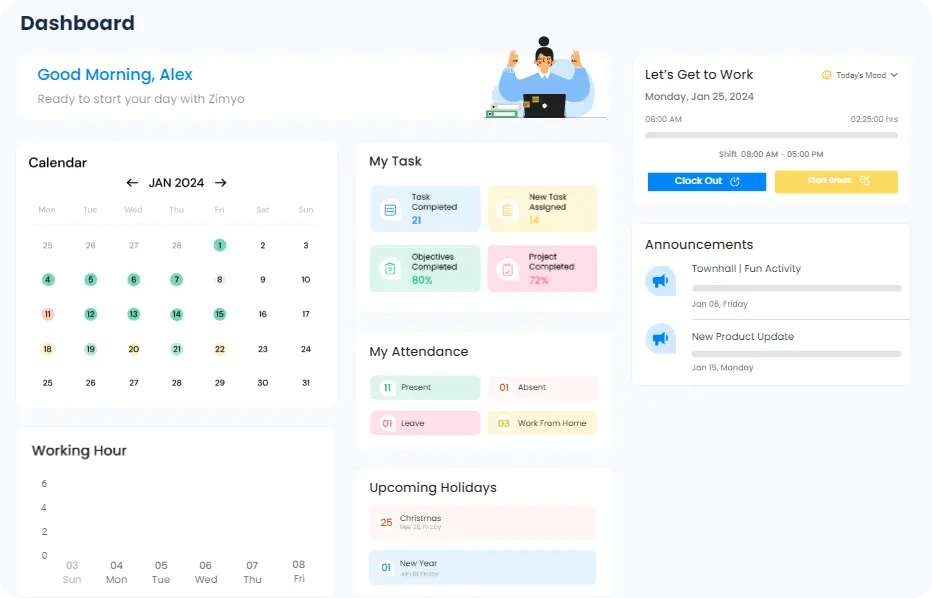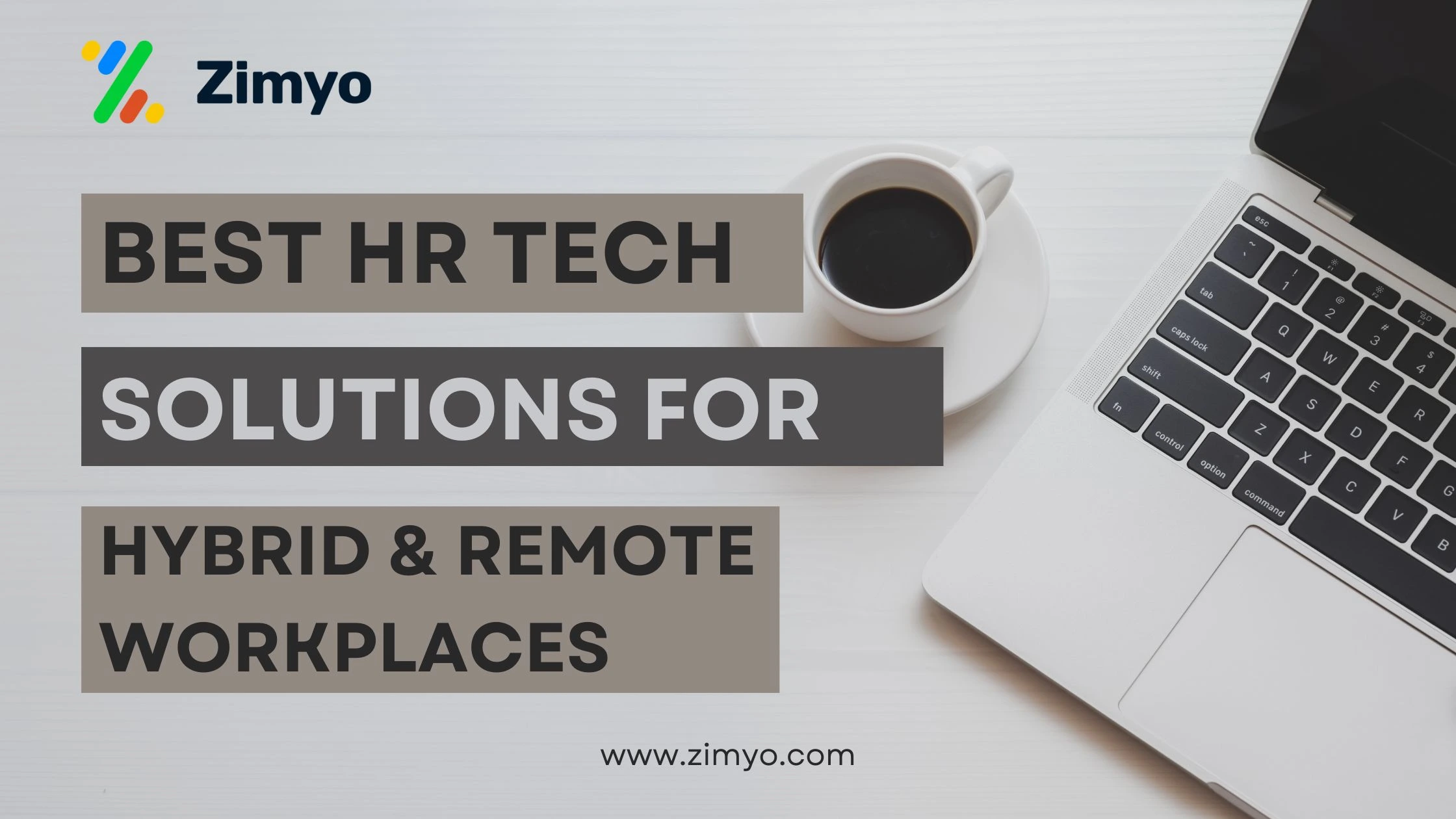Human Resource Management (HRM) plays a crucial role in shaping the success of an organization. It focuses on optimizing workforce potential, streamlining HR operations, and fostering a productive work environment. In today’s dynamic business landscape, strategic HR management has become essential for driving growth and efficiency.
What is Human Resource Management?
Human Resource Management (HRM) refers to the strategic approach to managing people in an organization. It involves creating a work environment where employees are motivated, engaged, and aligned with the company’s objectives. At its core, HRM includes processes such as recruitment, onboarding, training, performance management, and employee relations.
You might be thinking, “Why does HR management matter?” Well, let’s dive deeper into its significance and see how it contributes to business success.
Importance of Human Resource Management
You might ask, “Why is HR management so important for my business?” The answer is simple: HRM drives employee productivity, engagement, and overall business success. Without effective HR management, organizations risk losing their competitive edge. Here’s why HRM is crucial:
1. Enhancing Employee Productivity
HR software and HRMS solutions automate HR tasks, allowing HR professionals to focus on strategic initiatives that boost workforce efficiency.
2. Fostering a Positive Workplace Culture
A well-structured HR management system promotes diversity, inclusivity, and employee well-being, creating a positive work environment.
3. Aligning Workforce with Business Goals
HRM ensures that employees’ skills and performance align with organizational objectives, contributing to long-term business success.
4. Reducing Employee Turnover
By implementing effective retention strategies, HRM helps organizations retain valuable talent, reducing hiring costs and maintaining stability.
5. Driving Organizational Growth
Strategic HR management supports business expansion by ensuring workforce scalability and adaptability to market changes.
Functions of Human Resource Management
The role HRM extends beyond just hiring and firing employees. It involves a wide range of functions that support the organization’s overall goals. Let’s explore some of these key functions of Human Resource Management:
1. Recruitment And Talent Acquisition
HR professionals identify, attract, and hire skilled individuals who align with the company’s culture and objectives. A well-structured hiring process ensures businesses get the right talent for sustainable growth.
2. Employee Onboarding & Engagement
Effective employee onboarding programs help new employees integrate into the organization smoothly. HRM also focuses on engagement strategies that foster motivation and job satisfaction, reducing employee turnover.
3. Performance Management & Appraisals
Strategic HR management involves setting clear performance expectations and evaluating employee contributions through regular feedback, goal setting, and performance appraisals.
4. Training & Development
Providing employees with skill enhancement programs, workshops, and professional development opportunities is a core function of HRM. Well-trained employees contribute to organizational success and innovation.
5. Compensation & Benefits Management
HRM ensures fair and competitive salaries, bonuses, and employee benefits such as health insurance, retirement plans, and wellness programs to attract and retain top talent.
6. HR Compliance & Legal Framework
HR professionals manage labor laws, workplace policies, and employee rights to ensure compliance and minimize legal risks.
Role of HR Software in Modern HR Management
With technological advancements, HR software and HRMS solutions have revolutionized human resource management. Benefits of HRMS software is that they automate HR processes, improve data accuracy, and enhance decision-making, making HR operations more efficient.
Zimyo: The Best HRMS Solution
If you’re looking for a powerful tool providing human resources services to streamline your HR management processes, Zimyo offers an AI-powered HRMS solution for small and medium-sized businesses. With over 2500+ satisfied customers in 50+ countries, Zimyo’s cloud-based platform helps businesses hire, engage, and pay employees effortlessly.
Zimyo HRMS offers a variety of modules in their human resources services package, including:
- Zimyo HR Software: Manages employee data, onboarding, performance, and attendance.
- Zimyo Payroll: Automates payroll and ensures statutory compliance.
- Zimyo Performance Management: Tracks employee performance and helps align goals with business objectives.
- Zimyo Recruit: Streamlines the recruitment process, helping you hire the right talent efficiently.









The Role of Technology in Human Resource Management
In the digital age, HRM is no longer limited to paperwork and manual processes. With advancements in technology, HR has become more efficient, automated, and data-driven. HRMS (Human Resource Management System) has upgraded the way businesses manage their workforce.
1. Automation
HR software automates repetitive tasks such as payroll processing, attendance tracking, and leave management. This reduces human error and frees up valuable time for strategic planning.
2. Data Management
With HRMS, HR managers can easily manage and access employee data. Resultantly, ensuring compliance with labor laws and maintaining accuracy in reporting.
3. Employee Engagement
A good HRMS helps track employee engagement levels, providing insights into employee satisfaction and areas that need improvement.
Corporate Challenges Overcome by HRM
While HR management is essential, it comes with its own set of HR challenges. Managing people is complex, and these challenges must be addressed for business success. Here are some common challenges:
- Employee Retention: How do you ensure top talent stays with your company? HR management offers strategies such as career development programs and a positive work environment.
- Compliance: Navigating labor laws can be tricky. HRMS helps businesses stay compliant with regulations, reducing the risk of legal issues.
- Diversity & Inclusion: Promoting a diverse and inclusive workplace is critical. HR management implements programs that promote respect and equality among employees.
Conclusion: The Future of Human Resource Management
Human Resource Management is an indispensable function that directly impacts an organization’s success. By leveraging strategic HR management, businesses can optimize their workforce, enhance employee satisfaction, and drive overall growth. Implementing advanced HR software solutions further streamlines HR operations, making organizations more agile and competitive in today’s evolving business environment.
FAQs (Frequently Asked Questions)
The major intention of HRM is to protect the organization and its employees from any unethical exploit.
The major functions of HRM are recruitment, training and development, job review, career planning etc.
Human resource management system allows you to organize your workforce by determining roles and teams or departments.

















